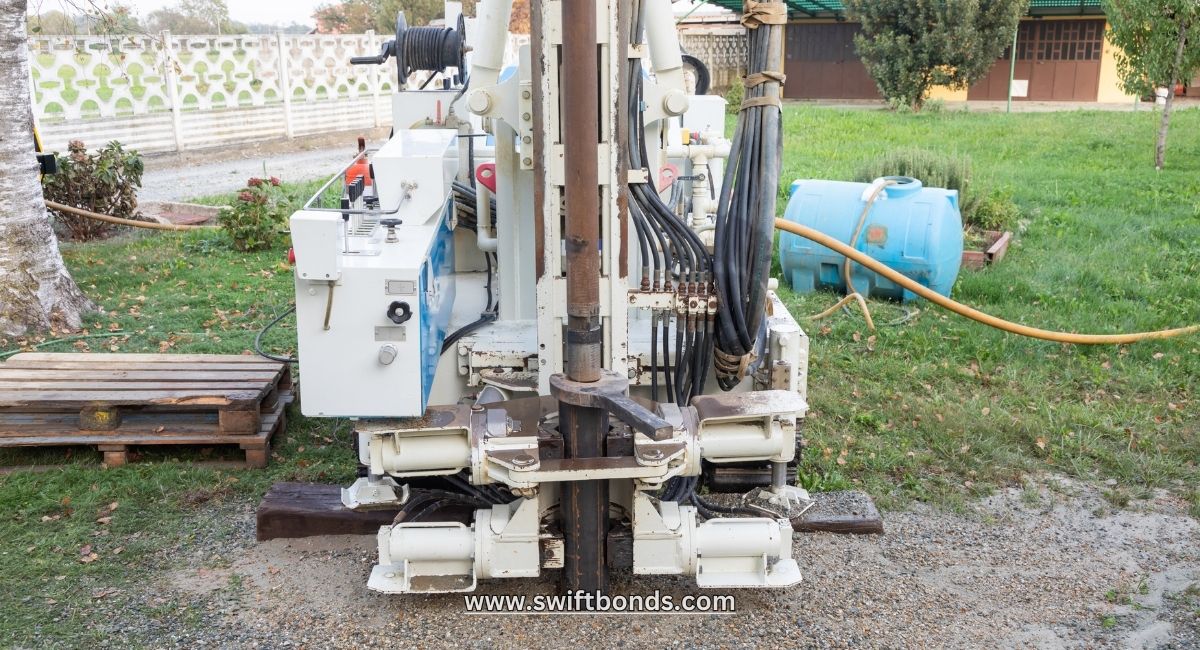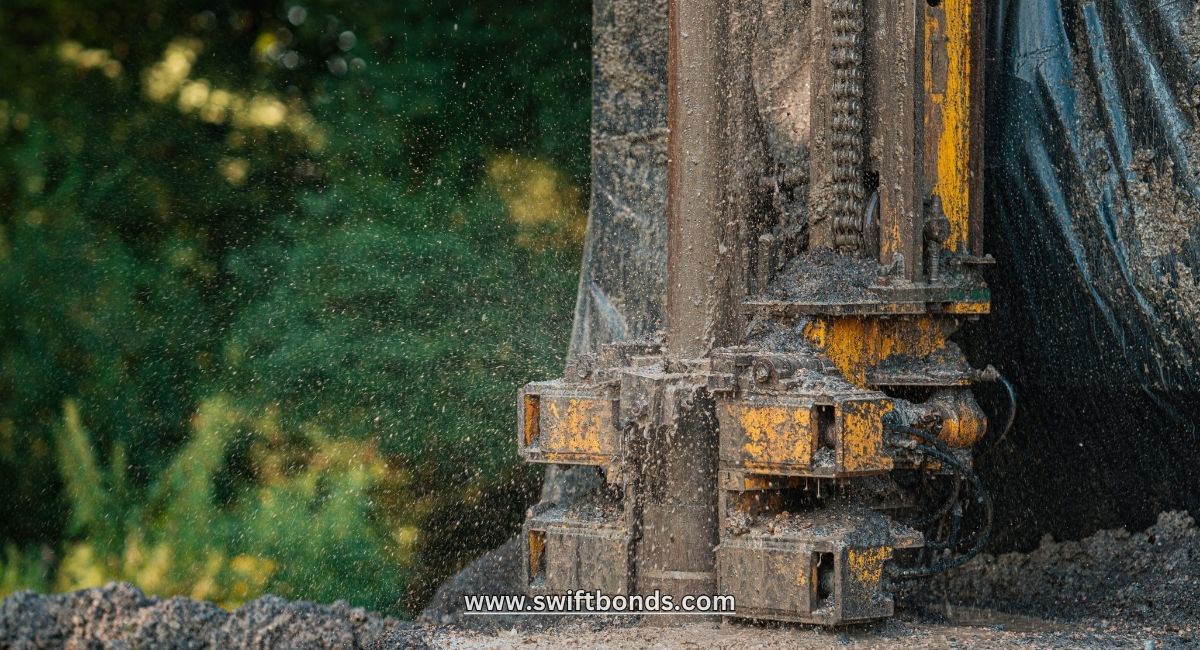Get an Instant Quote on Well Plugging or Drilling (Multiple Wells) Bond
Introduction
From our perspective, oil and gas operators in Louisiana carry more than just the weight of energy production—they hold a responsibility to the land and community. If you’re operating multiple wells, the state requires more than permits. You need financial security that ensures any future plugging or remediation will be handled properly. That’s where the Louisiana – Well Plugging or Drilling (Multiple Wells) Bond comes in.
This surety bond is required by the Louisiana Department of Natural Resources (DNR) for any party drilling or managing several wells under one permit. It guarantees that if the operator fails to plug and abandon the wells, funds will be available to cover the cleanup. The bond is not for the benefit of the operator—it protects the public, the environment, and the state of Louisiana.
Much like how courts require financial backing with a Louisiana – TRO / Temporary Restraining Order Bond, the DNR mandates these well bonds to safeguard against harm from non-compliance. Whether you’re drilling in the Parish of Ascension or overseeing a broader set of operations, bonding is a must.
Operators Misunderstand Bond Requirements
We’ve noticed that operators often misjudge what qualifies as “multiple wells” and when the bond must be filed. Many believe a single well bond will suffice, even when managing several sites. Others mistakenly delay the bond, thinking it’s only needed before abandonment—not at the time of permit issuance.
Louisiana regulations are clear: if you operate more than one well, a blanket bond must be filed with the Office of Conservation. The bond amount typically starts at $250,000 but can vary based on the number of wells, depth, and risk factors. Failing to file can result in permit denials, enforcement actions, or even well shutdowns.
This is similar to the common misconceptions seen in legal cases where a Louisiana – TRO / Temporary Restraining Order Bond is misunderstood. Both types of bonds require precise timing and compliance—waiting too long or submitting the wrong amount can have serious regulatory consequences.

Swiftbonds Simplifies the Bonding Process
Based on our experience, working with an experienced surety partner is the key to staying in compliance and avoiding delays. Swiftbonds helps Louisiana operators secure the exact type of bond required—delivered on time and formatted to DNR standards.
The Louisiana – Well Plugging or Drilling (Multiple Wells) Bond is not a generic instrument. It must meet language and coverage criteria established by the state. Swiftbonds ensures every bond meets those technical needs—whether the well is in the Parish of Ascension or elsewhere in Louisiana.
Just as a court won’t enforce a TRO without a compliant bond, the DNR won’t allow drilling or operation until the proper bond is filed and accepted. Swiftbonds eliminates the guesswork.

Steps To Secure a Multi-Well Plugging Bond
What we’ve discovered is that obtaining a Louisiana – Well Plugging or Drilling (Multiple Wells) Bond is straightforward when handled properly:
-
Identify the Number of Wells – Provide details on all active or planned wells under your operational control.
-
Submit a Bond Application – Swiftbonds reviews the operator’s financials and history to match with a qualified surety.
-
Issue and File the Bond – The approved bond is filed with the Louisiana Office of Conservation to activate compliance.
Bonding for multiple wells is often a more cost-effective option than purchasing individual bonds for each site. It also saves time and simplifies renewals—an advantage many smaller operators overlook.
This process mirrors the efficiency found when issuing other Louisiana bonds, like the Parish of Ascension, LA – Contractor’s License ($5,000) Bond, where one step unlocks eligibility for permitting and work.

Failing To Bond Can Trigger Enforcement
In our observation, the consequences of skipping or delaying a well plugging bond can be more than financial. The DNR has authority to deny permits, issue fines, or suspend drilling operations until bonding is complete.
For operators drilling in sensitive areas or parishes with additional environmental oversight, the stakes are even higher. Not having a valid Louisiana – Well Plugging or Drilling (Multiple Wells) Bond on file can lead to permit rescission or personal liability for plugging costs.
We’ve seen similar urgency in the legal space, where filing delays in a Louisiana – TRO / Temporary Restraining Order Bond can halt protective court orders. The lesson is clear: bonding is not a box to check—it’s a core regulatory requirement that demands attention and speed.

Bonding Builds Trust With Regulators
We’ve learned that companies who stay ahead of bonding requirements signal responsibility and credibility to Louisiana regulators. It shows a willingness to protect the state’s land, resources, and taxpayers—no matter the scale of operations.
Just like contractors need a Parish of Ascension, LA – Contractor’s License ($5,000) Bond to earn local trust and access project opportunities, oil operators use surety bonds to demonstrate long-term commitment and environmental stewardship.
Swiftbonds helps operators earn that trust by delivering bonds that are complete, court- or agency-approved, and backed by credible sureties.
Louisiana Bonding Law And Compliance
In Louisiana, well plugging bonds are governed by Title 30 of the Louisiana Revised Statutes. According to La. R.S. § 30:4, the Commissioner of Conservation has authority to require surety bonds from any party drilling or operating wells. The bond amount depends on the type, number, and risk profile of the wells.
The Louisiana Administrative Code, particularly LAC 43:XIX.104, outlines the standards for bonding related to multiple well permits. These bonds must remain valid through the life of the permit and are forfeited if the operator fails to plug the wells properly.
For full compliance, operators should reference:
Only bonds issued by licensed surety companies are accepted. Swiftbonds meets this requirement and provides compliant forms pre-approved for state use.
Conclusion
We’ve come to appreciate that oil and gas operators managing multiple wells in Louisiana aren’t just dealing with geological challenges—they’re also navigating complex compliance requirements. The Louisiana – Well Plugging or Drilling (Multiple Wells) Bond is a foundational tool that keeps your operations legally sound and environmentally responsible.
Swiftbonds helps operators move quickly through bonding requirements without missteps. Whether you’re seeking a well plugging bond or handling legal filings like the Louisiana – TRO / Temporary Restraining Order Bond, Swiftbonds ensures you meet state demands with speed and precision.
Whether your next project is in the Parish of Ascension or across multiple parishes, Swiftbonds is ready to help you secure the bonds that keep your operation running smoothly—and in full legal standing.
Frequently Asked Questions
What does the Louisiana well plugging bond cover?
We’ve often noticed this question from operators. The bond covers the cost of plugging and properly abandoning oil or gas wells if the operator fails to do so.
When is the well plugging bond required?
We’ve often noticed confusion about timing. The bond is required before drilling or operating multiple wells under one permit, not just at abandonment.
How much is the bond for multiple wells?
We’ve often noticed varying figures. The amount typically begins at $250,000 and increases based on the number of wells and risk exposure.
Can one bond cover all wells in different parishes?
We’ve often noticed operators ask this. Yes, a blanket bond can apply statewide, including wells in the Parish of Ascension, if structured properly.
How does this bond compare to other Louisiana surety bonds?
We’ve often noticed parallels with other bonds. Like the Louisiana – TRO / Temporary Restraining Order Bond, this bond guarantees responsible action and regulatory compliance, but it’s specific to oil and gas operations.


